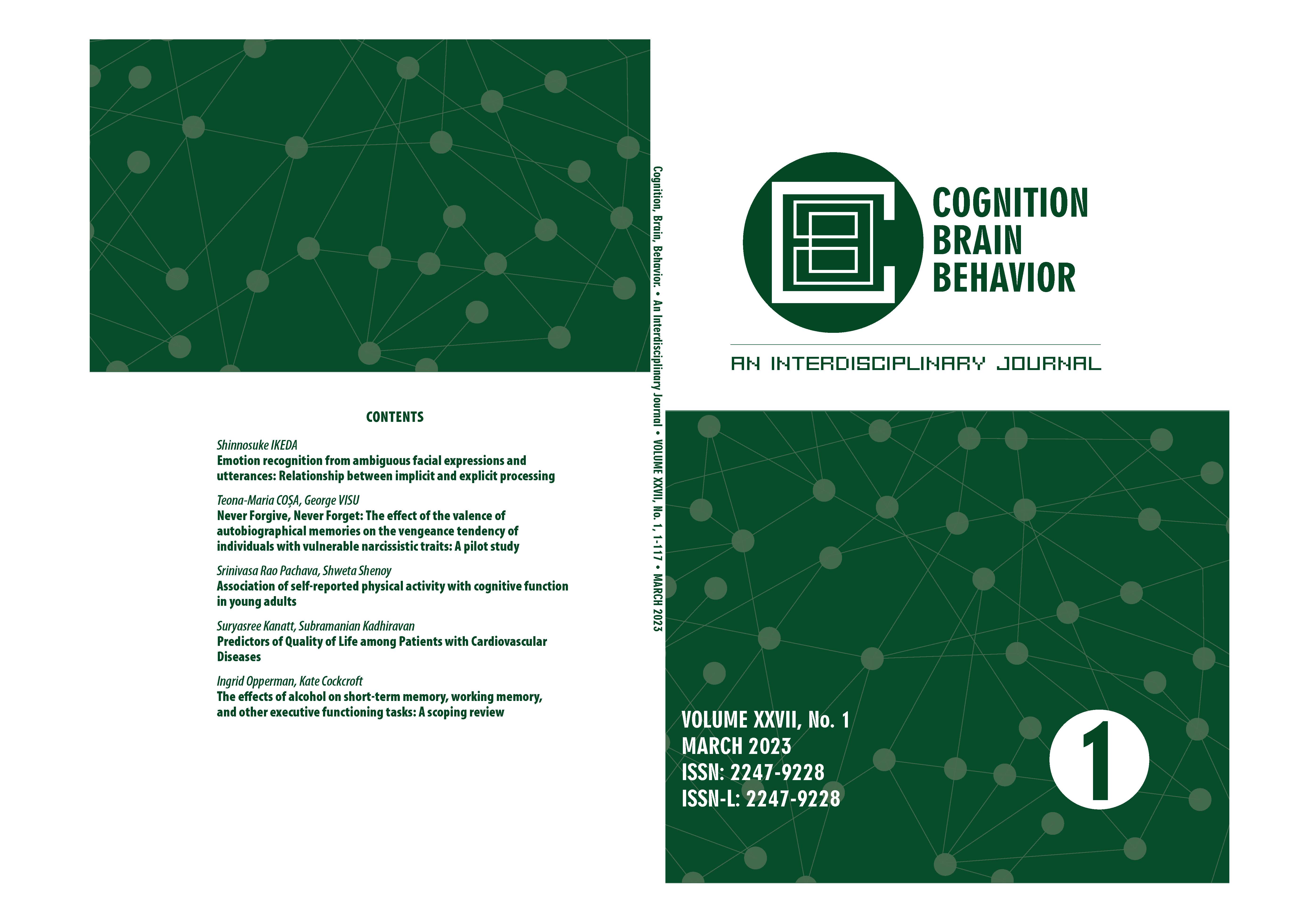Association of self-reported physical activity with cognitive function in young adults
Association of self-reported physical activity with cognitive function in young adults
Author(s): Srinivasa Rao Pachava, Shweta ShenoySubject(s): Cognitive Psychology, Methodology and research technology, Health and medicine and law
Published by: Editura Asociației de Științe Cognitive din România (ASCR)
Keywords: paired associate learning; executive function; working memory; physical activity; CANTAB;
Summary/Abstract: Poor cognitive function is a potential predictor for mortality amongst all age groups and indicates the general status of health amongst people. Literature suggests that physical activity can have a positive impact on cognitive functions (Li et al., 2017). Current research has largely focused on this aspect amongst older adults (Ingold et al., 2020). Therefore, the primary goal of the present study is to examine the relationship between self-reported physical activity and cognitive function in young adults. A cross-sectional study design involving 75 participants (40 females and 35 males) in the age group of 18 – 30 years was employed. Measures included International Physical Activity Questionnaire (IPAQ) and Cambridge Neuropsychological Automated Testing Battery (CANTAB) (Paired Associate Learning, Spatial Working Memory, Multitasking Test and Rapid Visual Processing). Data was analyzed using Pearson correlation coefficient in SPSS v28 for Mac. The findings revealed a significant positive association between the moderate intensity physical activity and executive function among young adults. This supports that better executive function performance is found in young adults who performed moderate intensity physical activity.
Journal: Cognition, Brain, Behavior. An Interdisciplinary Journal
- Issue Year: XXVII/2023
- Issue No: 1
- Page Range: 49-68
- Page Count: 21
- Language: English
- Content File-PDF

